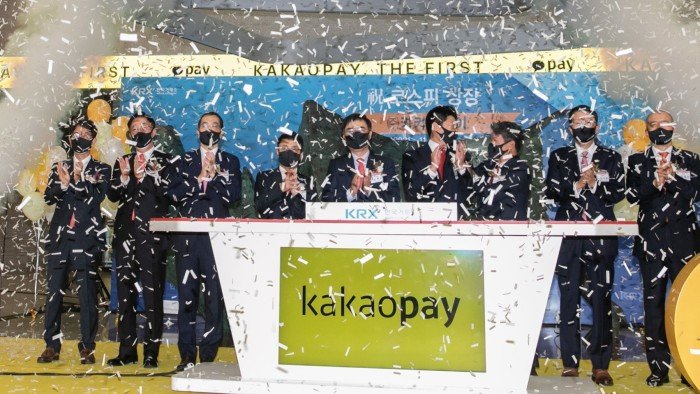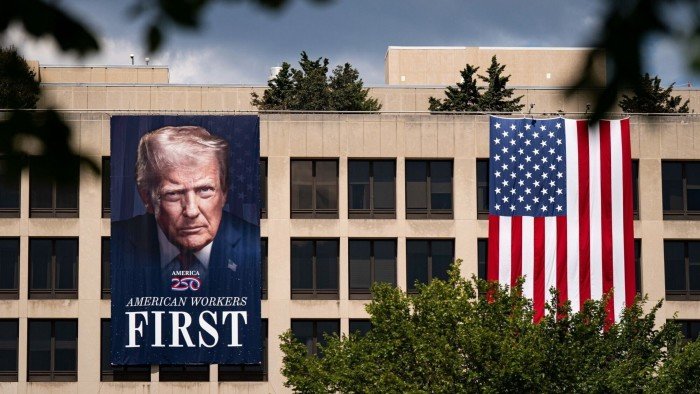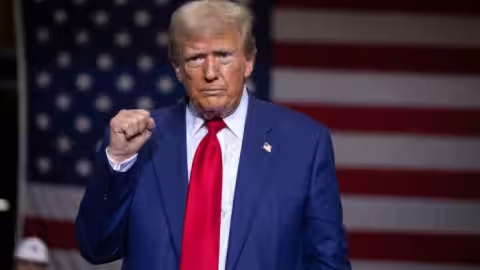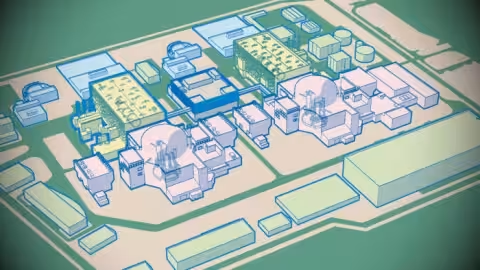South Korea’s stock market has been supercharged by an investor frenzy over won-based digital money this month, following newly elected President Lee Jae-myung’s pledge to allow crypto assets backed by the national currency.
Stocks that have been involved in the Bank of Korea’s digital currency project, including Kakao Pay and LG CNS, have been on a wild ride. Kakao Pay shares more than doubled this month and LG CNS rose almost 70 per cent, before paring some gains this week on profit-taking.
On the Kosdaq junior market, fintech security company Aton’s stock jumped 80 per cent, while ME2ON, a mobile game producer, tripled, with its subsidiary recently launching a dollar-pegged stablecoin for casino games.
The wave of retail enthusiasm for the likely issuance of won-based stablecoins, along with expectations of shareholder-friendly policies from the new government, has helped boost the benchmark Kospi Composite index almost 30 per cent this year to a near four-year high. It has also made South Korea the best-performing market in Asia in the first half of the year.
The market rally has encouraged retail investors to increase their leverage to chase gains, with outstanding margin loans rising to Won20.5tn ($15bn), according to data from the Korea Financial Investment Association.

The popularity of stocks seen as potentially benefiting from won-based stablecoins comes despite the government having yet to announce the details of its cryptocurrency policies.
Expectations had been fuelled by Lee’s appointment of Kim Yong-beom, a longtime advocate of digital tokens, as his chief policy adviser, and by a parliamentary bill proposed by the ruling party this month to promote the country’s digital asset industry.
The bill will allow companies with as little as Won500mn in equity capital to issue won-based stablecoins — a move critics warn could open the floodgates to undercapitalised players and cause systemic risks.
South Korea is one of the world’s most vibrant crypto markets, with about a fifth of the country’s population trading digital assets. US dollar-pegged stablecoins trading in the country hit Won57tn in the first three months of this year, piling pressure on the Bank of Korea to accelerate preparations to issue its own digital currencies.
Banks, brokerages and fintech companies are showing strong interest in entering the business, although the government is yet to decide on the issuers and timing.
“We are keen to do the business, but we are watching out for where the government draws the line in terms of regulation,” said a fintech industry executive.
Bank of Korea governor Rhee Chang-yong has expressed concern about any issuance of won-pegged stablecoins by non-bank entities, citing their impact on capital flows and the effectiveness of monetary policy. The central bank has said it will consult major commercial banks on preparing a second pilot test of its digital currency.
However, experts have warned that some stocks driven higher by surging interest in digital tokens may be overvalued based on their fundamentals. They have urged investors to exercise caution due to the volatility of the shares.
“Won-pegged stablecoins are likely to be introduced, but how much that will help boost corporate earnings is questionable,” said Hwang Sei-woon, senior research fellow at Korea Capital Market Institute.
“Investor expectations seem to be overblown, given still high regulatory uncertainties. And some of the high-flying companies still lack the necessary technologies and infrastructure for stablecoins,” he added.























